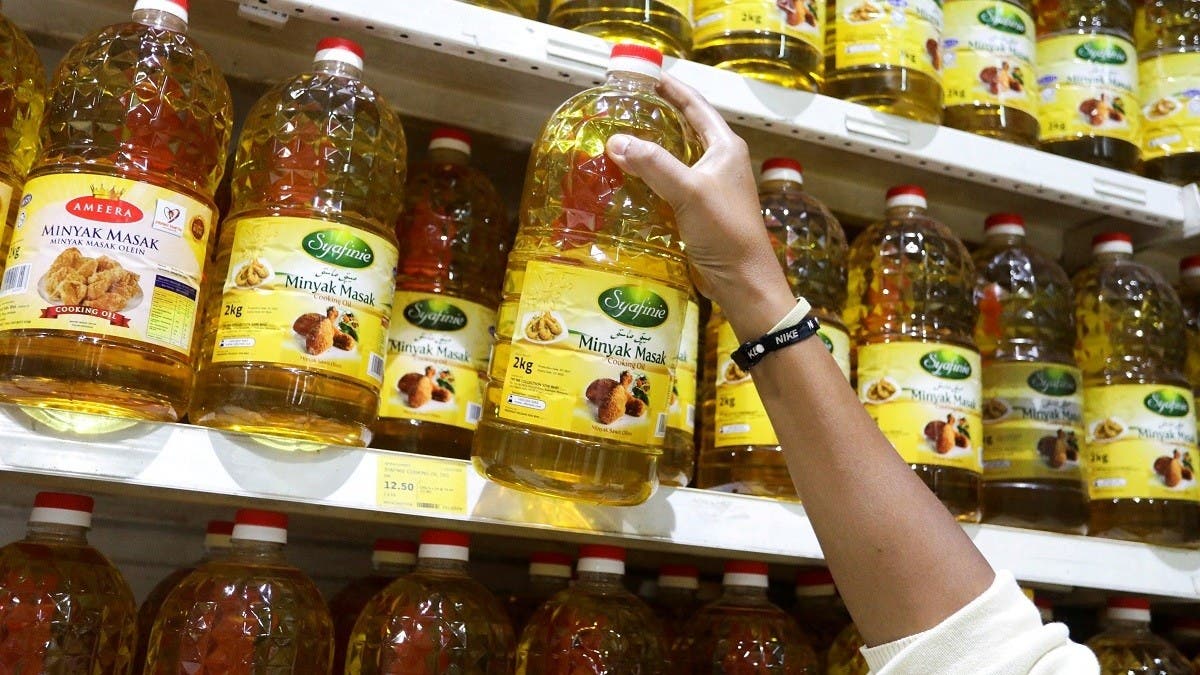A global food crisis sparked by Russia’s invasion of Ukraine escalated on Wednesday as Indonesia curbs on palm oil exports, adding to a growing list of key producing countries seeking to keep vital food supplies within their borders.
The conflict in Ukraine is threatening global grain production, the supply of edible oils and fertilizer exports, sending basic commodity prices rocketing and mirroring the crisis in energy markets.
For the latest headlines, follow our Google News channel online or via the app.
Palm oil is the world’s most widely used vegetable oil and is used in the manufacture of many products including biscuits, margarine, laundry detergents and chocolate. Palm oil prices have risen by more than 50 percent this year.
Indonesia’s Trade Minister Muhammad Lufti said the export curbs aimed to ensure that cooking oil prices at home remain affordable to consumers.
The rise in prices comes at a time when affordability of food is a major challenge as economies seek to recover from the coronavirus crisis and is also helping to fuel a broader surge in inflation across the globe.
Russia and Ukraine are also important suppliers of edible oils as well as contributing nearly 30 percent of global wheat exports.
Ukraine announced on Wednesday it had banned a wide range of agricultural exports including barley, sugar and meat until the end of the year.
The conflict has not only disrupted shipments from the Black Sea region but is also jeopardizing prospects for harvests as fertilizer prices soar and supplies shrink in response to a sharp rise in the cost of natural gas – a key component in the manufacturing process for many products.
World food prices rose to a record high in February to post a year-on-year increase of 20.7 percent, according to the United Nations food agency, while many markets have continued to climb this month.
Malaysian palm oil futures rose to an all-time high following Indonesia’s announcement while soybean oil prices jumped to a 14-year peak.
Soybean oil prices have climbed by almost 40 percent this year.
Scrambling for supplies
Russia and Ukraine are both major producers of sunflower oil and the two countries account for almost 80 percent of global exports, leaving customers such as India scrambling to secure supplies of alternatives such as palm oil and soy oil.
Chicago wheat futures have climbed around 60 percent so far this year, threatening to raise the cost of key food staples such as bread.
The loss of two major exporters in Ukraine and Russia has been compounded by news that the condition of the wheat crop in the world’s top producer, China, may be the “worst in history” according to the country’s agriculture minister.
Poor growing conditions in drought-affected parts of the US Plains look set to further tighten supplies.
Serbia announced on Wednesday it will ban exports of wheat, corn, flour and cooking oil as of Thursday to counter price increases while Hungary banned all grain exports last week.
Bulgaria has also announced it will increase its grain reserves and might restrict exports until it has carried out planned purchases.
Grain supplies in Romania, a major exporter, have also tightened as international buyers seek alternatives to Russia or Ukrainian supplies although there are currently no plans to restrict shipments.
Global grain production could also decline as the production of fertilizers, which help to boost crop yields, is curtailed following a rise in natural gas prices.
Yara, one of the world’s largest fertilizer makers, said on Wednesday it was curtailing its ammonia and urea output in Italy and France.
The Norwegian company warned last week that the conflict was threatening global food supplies.
Russia, which calls its actions in Ukraine a “special operation” rather than an invasion, had been a major supplier of fertilizers but the country’s trade and industry ministry recommended on Friday that producers temporarily halt exports.
Read more:
China to provide war-torn Ukraine about $790,000 in aid: Official
Ukraine bans exports of several grains, sugar, salt, meat
Wheat shipment from Ukraine arrives in Lebanon’s Tripoli


 World3 years ago
World3 years ago
 World3 years ago
World3 years ago
 Business11 months ago
Business11 months ago
 Entertainment7 years ago
Entertainment7 years ago
 World7 years ago
World7 years ago
 Entertainment7 years ago
Entertainment7 years ago




